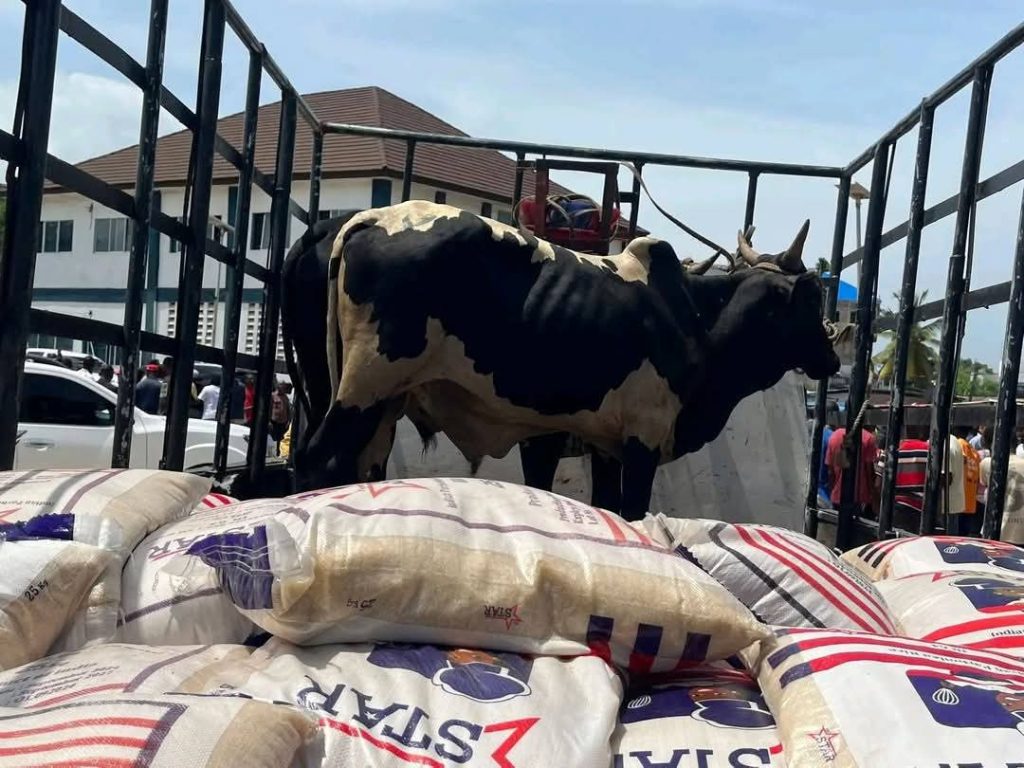The Doe family, still grieving the loss of former First Lady Nancy B. Doe, found themselves embroiled in internal conflict following a condolence visit from former President George Weah. Weah’s gesture of sympathy, which included two cows, 50 bags of rice, and $5,000 USD (presented as LRD 1 million), sparked a heated debate within the family, exposing underlying tensions and unresolved issues. The initial rejection of the gift by Veronica Mamie Doe, daughter of the deceased, highlighted the raw emotions and lingering resentment towards Weah. She accused him of hypocrisy, citing his alleged neglect of her mother during her lifetime and vowing to exclude him from funeral proceedings. This act of defiance ignited a public spectacle, amplified by social media, further exacerbating existing political divisions.
The controversy surrounding the condolence gift exposed a deep rift within the Doe family, juxtaposing the immediate rejection of the gift with subsequent attempts at reconciliation and acceptance. While Veronica vehemently returned the offering to Weah’s party headquarters, other family members, seeking to maintain decorum and unity during their time of mourning, pleaded for its return. Dr. Isaac Nyenebo, acting as a liaison, publicly apologized to Weah and accepted the gift on behalf of the family, emphasizing the importance of a unified front in honoring their departed matriarch. This back-and-forth underscored the complexities of grief, familial dynamics, and the often-volatile intersection of personal relationships and political history.
Veronica’s unwavering stance, however, added another layer of complexity to the already fraught situation. Despite her siblings’ initial acceptance, she doubled down on her rejection, asserting her authority as the eldest daughter and reclaiming the decision to return the gift a second time. This act of defiance underscored the depth of her resentment towards Weah and her refusal to accept what she perceived as a disingenuous display of sympathy. Her actions reignited the family feud, pitting her against those who prioritized maintaining a semblance of unity during the mourning period. The conflicting perspectives within the family highlighted the challenges of navigating grief and reconciling past grievances in the public eye.
At the heart of this conflict lay the accusation of Weah’s neglect of the former First Lady during his presidency. The Doe family claimed Nancy B. Doe was denied her rightful benefits, a grievance they maintained remained unresolved. This perceived injustice fueled Veronica’s anger and solidified her resolve to reject Weah’s overture. The condolence gift, rather than being a symbol of sympathy and reconciliation, became a lightning rod for long-standing resentment and accusations of hypocrisy. The public nature of the dispute further amplified these sentiments, transforming a private family matter into a political spectacle.
The incident involving the condolence gift served as a microcosm of the larger political landscape, highlighting the enduring divisions and lingering tensions from Liberia’s complex past. Weah’s attempt at extending an olive branch and fostering unity among southeasterners was met with resistance, underscoring the deep-seated mistrust and the challenges of bridging political divides. The public nature of the dispute further exacerbated these tensions, transforming a private family matter into a political football.
The saga of the rejected condolence gift transcended a simple family feud, becoming a symbolic representation of unresolved historical grievances, political maneuvering, and the complexities of public image. While Weah sought to portray himself as a unifying figure, his actions were interpreted by some as opportunistic and insincere. The Doe family’s internal divisions, played out in the public arena, further complicated the narrative, highlighting the enduring impact of past injustices and the challenges of reconciliation in a politically charged environment. The ultimate fate of the cows, accepted by some family members and transported to Grand Gedeh, serves as a poignant reminder of the enduring divisions and the unresolved tensions that continue to simmer beneath the surface.


